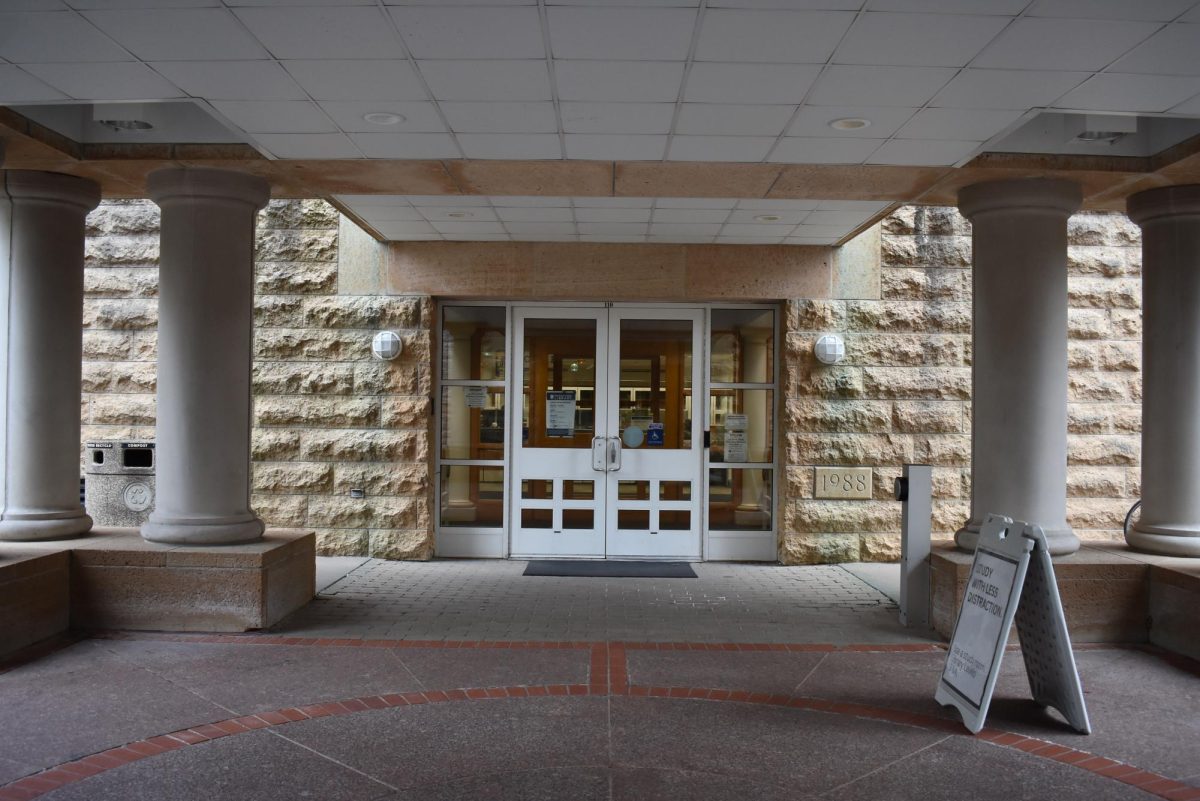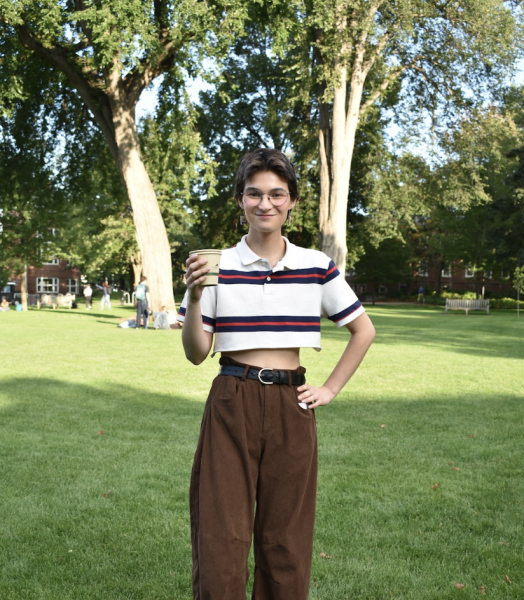The image of a student up until 1 a.m. working on an essay has long been the representation of a traditional college experience. Macalester’s DeWitt Wallace Library aims to change this interpretation of college academic culture through adjustments to the library’s hours and spaces.
New this academic year, the library’s hours of operation are from 8 a.m. to 11 p.m. Monday – Thursday, 8 a.m. to 8 p.m. on Friday, 10 a.m. to 8 p.m. on Saturday and 10 a.m. to 11 p.m. on Sunday. In previous years, the library has opened at 8 a.m. and remained open until 1 a.m. on Sunday – Thursday.
According to Library Access Services Manager Madisen Egan, the changing hours were just one part of an initiative exploring how the library could best serve students.
“The library in general is really focused on looking into the ways that our services and our resources — and that includes our spaces — are meeting patron needs,” Egan said.
Egan explained that conversations with library staff, student workers and the Laurie Hamre Center for Health and Wellness informed the library’s decision to shorten hours.
Library access services manager Tommy Fowler ’25 regularly worked the closing shift when he first began working at the library. Fowler stopped working this shift when he noticed the late hours were negatively impacting his mental health and productivity. He feels that the altered hours are a product of a larger transformation in academic culture. Both Fowler and Egan pointed out that professors have started making assignments due earlier in the evening, in line with the focus on mental health and to encourage students to sleep.
“I think that there’s sort of already been this culture change on campus with professors — most of my professors, at least — making things due at like 8 p.m. instead of midnight,” Fowler said. “I think that there’s already sort of this movement to encourage students to get enough sleep and not stay up so late.”
Returning library student workers were notified of this change through an email sent out over the summer. Library access services manager Luke Evans ’26 has worked for the library since his first year at Macalester and recalled working the closing shifts occasionally in his first year. Evans remembers doing head counts at 10 p.m. and then at 12 a.m.; he noted that only a few individuals remained in the library until closing.
“There seemed to kind of be a general sentiment that they were thinking about changing [the hours],” Evans said. “But when the email came this summer to say that we were closing early, I wasn’t really very surprised.”
This change in library hours accompanied the renovation of the Ruth Stricker Dayton Campus Center, which is now open until 1 a.m. and has expanded its seating options on the second floor. The Link remains open 24 hours each day, seven days a week. For students, keycard access to academic buildings turns off at midnight.
However, some students were caught off guard by the change in hours. For Riley Hodin ’25, other buildings don’t have the same productive atmosphere as the library.
“I’ve been in the library until 1 a.m. before,” Hodin said. “This [change in hours] wouldn’t be a problem if the alternatives were better. The Link is boiling hot, and the outlets do not work, and there is that annoying humming noise. If they fixed those things, I would be happy to leave the library at eleven.”
Similarly, the library closing at 1 a.m. was a bit shocking for some incoming first years. At 11 p.m. one night, Noa Watson ’28 and Emma McNellis ’28 were knitting in the Idea Lab. The two friends seemed unaware that the library was closing.
“[I have to] do something someplace else — I’m not gonna go to bed in here,” McNellis commented.
The hour change did not upset all students, however. Another pair of first years, Angeline Cao ’28 and Boden Allen ’28, finished up sewing a pair of pants around 11 p.m.
“I probably would have clocked out at a similar time, just because I gotta get some sleep,” Allen said.
Another change in the library includes switching rooms on the fourth floor back to office spaces after a year of hosting group study rooms. According to Egan, Provost Lisa Anderson-Levy’s office manages the rooms on the fourth floor.
“The intent is to use those as offices when faculty who are on sabbatical need them,” Egan said. “Last year, it just so happened that there were no faculty members on sabbatical who needed the rooms.”
Looking forward, the Macalester Academic Excellence (MAX) Center will move into the first and third floors of the library in summer 2025. The writing tutors will move to the third floor, allowing for greater collaboration between MAX Center writing tutors and research and instruction librarians, while the quantitative tutors will occupy part of the first floor.
While hours and spaces might be changing, the textbook reserve program remains active. Before the implementation of Mac Books, Macalester’s new automatic textbook billing program, some members of the senior leadership team painted the future of the course reserve program as uncertain. The course reserve program — a collaborative effort between the library and Macalester College Student Government (MCSG) to make the most in-demand textbooks available for check out at the library — continues to receive $12,000 each academic year. Evans believes this continued funding is justified by the consistent usage he’s noticed this semester.
“I remember just the other week that every single copy of the principles of economics textbook was checked out at the same time,” Evans recalled. “People were coming up to ask for the book, and we had to tell them ‘unfortunately, we don’t have it — they’re all checked out.’ And I’ve never seen that before, and I remember talking to some senior managers and some of the workers at the library, and they had never seen it either. It’s especially impressive because we have maybe 10 or 12 copies of the principles of economics textbooks. So it’s a very popular class, and to see all its textbooks gone at the same time is just kind of remarkable.”
Egan hopes that these changes and continuities will not only enable students to achieve a more productive and healthy academic experience, but also center the library as a space for community.
“The outreach we’re doing is twofold but it all kind of goes together in how we operate as a library,” Egan said. “The library is a place for academic purposes and for learning how to be a scholar and engage in that type of pursuit but also just to have a good time while you’re at college and hang out and do fun things.”






